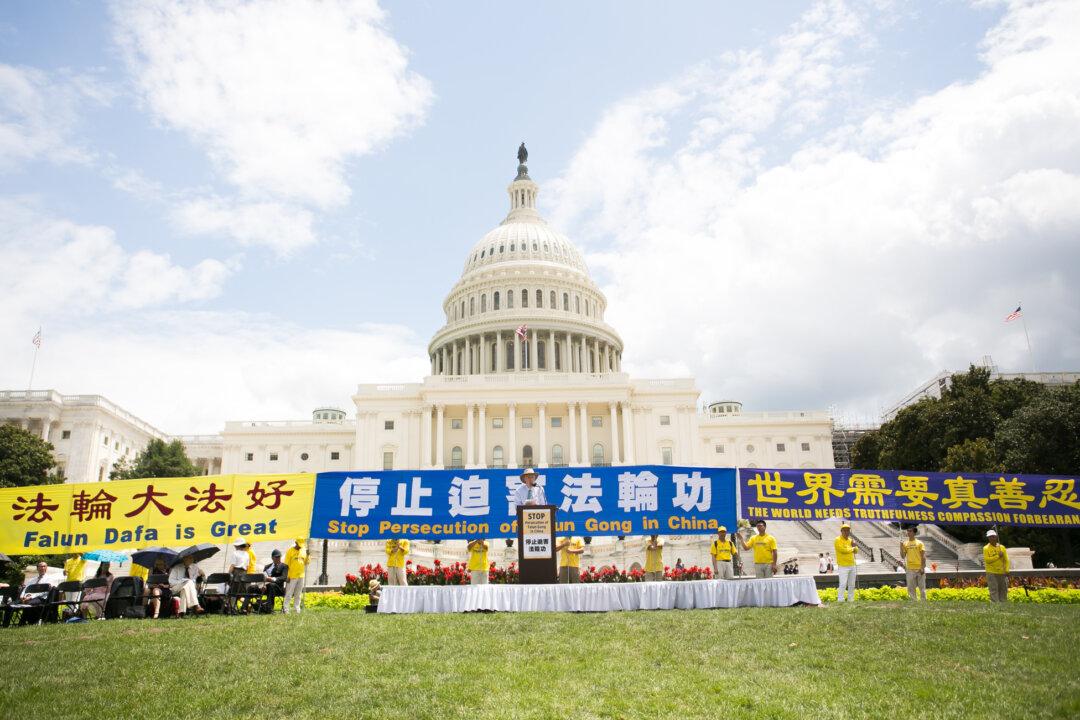WASHINGTON—Despite the stuffy summer humidity, about 2,000 people donning yellow shirts congregated at Capitol Hill on July 18 to call for an end to the persecution of the spiritual practice Falun Gong in China.
July 20 marks 20 years since the Chinese communist regime launched its sweeping campaign to eradicate Falun Gong, an ancient Chinese meditation practice. In 1999, official estimates placed the number of adherents at 70 million to 100 million.
Every year since 2000, practitioners from across the country and around the world have gathered in the nation’s capital to commemorate the anniversary of the persecution.
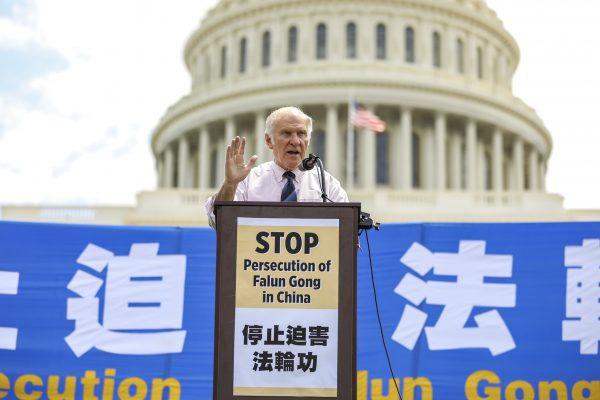
“I have to ask myself, how many years is enough?” said Alan Adler, executive director of Friends of Falun Gong and host of the rally held on the West Lawn of Capitol Hill on July 18. “Enough time for the world’s people to shake their disbelief, to get past their shock and horror, and actually do something about it? How many years of terror and cruelty is enough?”
U.S. Rep. Steve Chabot (R-Ohio) also spoke at the rally, condemning the Chinese regime for launching a “truly barbaric” persecution.
“Wrongful imprisonment, reeducation—brainwashing, really—torture, and forced organ harvesting are the tools they use to stifle [Falun Gong practitioners],” Chabot said.
“Such tactics have no place in a civilized society, yet they are commonplace in communist China.”
Organ Harvesting
Benedict Rogers, UK rights activist and East Asia team leader at nonprofit Christian Solidarity Worldwide, called for an end to forced organ harvesting from imprisoned Falun Gong practitioners in China.Last month, an independent tribunal concluded after a yearlong investigation that forced organ harvesting has taken place in China for years, “on a significant scale.” The tribunal judgment stated that Falun Gong practitioners were likely the main source of such organs.
Rogers urged governments around the world to take the tribunal’s findings seriously.
“It is time to stand up to the criminal state of the Chinese Communist Party,” he said.
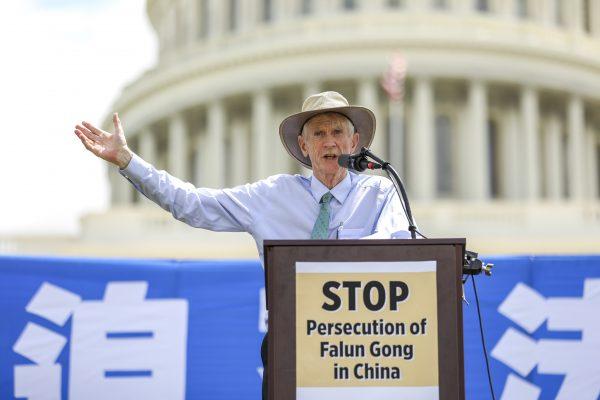
David Kilgour, former Canadian Secretary of State (Asia-Pacific), who has investigated organ harvesting for more than a decade and co-authored several reports on the issue, told reporters after speaking at the event that the regime’s actions were a crime against humanity.
“It compares with the Holocaust,” Kilgour said.
Growing Momentum
Rally speakers also pointed to growing public attention on the Chinese regime’s human rights abuses, driven in part by the Trump administration’s efforts.In June, U.S. Secretary of State Mike Pompeo, while speaking at the release of the department’s annual report on global religious freedom, called out the Chinese Communist Party (CCP) for its “extreme hostility to all religious faiths since its founding.”
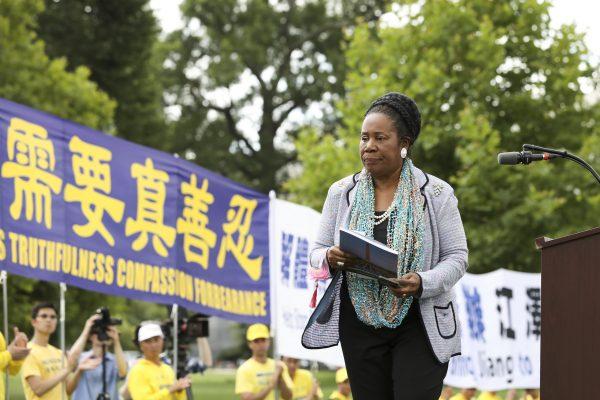
U.S. Ambassador-at-Large for International Religious Freedom Sam Brownback has repeatedly condemned the Chinese regime for its “war on faith” and has pledged that the United States “will not stop until we see the [worldwide] iron curtain of religious freedom come down.”
Pompeo, speaking at the ministerial on July 18, again called out the Chinese regime for its crimes against religious believers.
“The Chinese Communist Party demands control over the lives of the Chinese people and their souls,” he said.

On the issue of organ harvesting, Kilgour said voices for change have also been getting louder, especially since last month’s tribunal judgment.
Kilgour said he recently learned that a province in Canada, prompted by the tribunal judgment, plans to introduce legislation during the next parliamentary sitting to ban organ tourism to China.
Several speakers at the rally also called for the U.S. government to impose sanctions under the Global Magnitsky Act upon Chinese officials overseeing the persecution of Falun Gong practitioners.
The federal law allows the U.S. government to target human rights abusers by barring them from entering the country, freezing their U.S. assets, and restricting them from doing business with U.S. companies.
Chabot told reporters at the rally that Chinese officials from all levels of the CCP need to be held accountable for human rights violations.
To this end, sanctions and visa refusals for such officials should be considered by the United States, Chabot said.
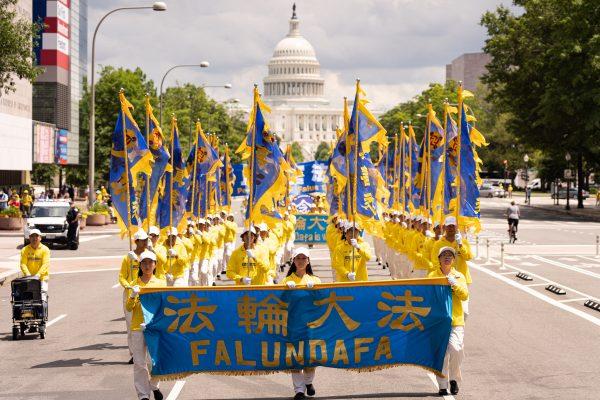
Remembering the Persecuted
With long, colorful banners in hand, practitioners lined up in neat rows marched from Capitol Hill toward the Washington Monument, where a vigil was scheduled for the evening.Among the participants was Li Shuyin. The U.S.-based practitioner, originally from mainland China, was holding a sign calling for the release of 21 practitioners from her hometown in Liaoning Province, many of whom were arrested recently, on July 10 this year.
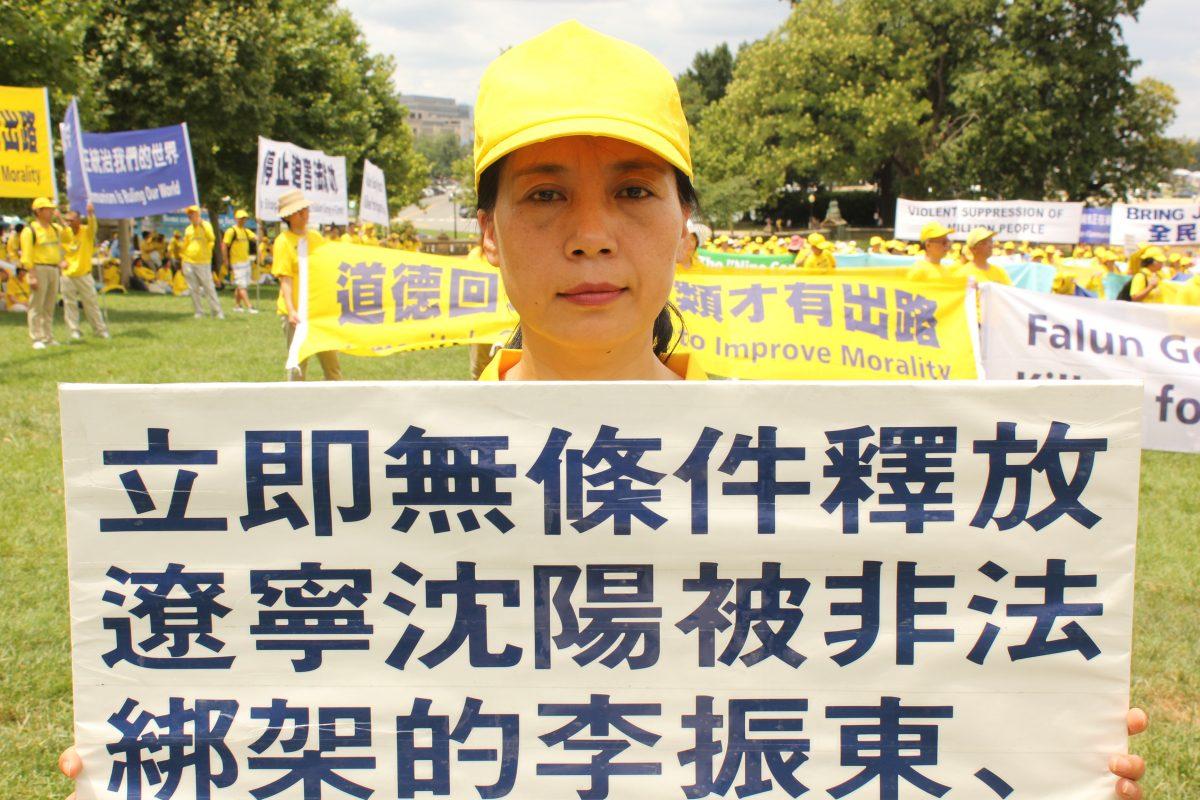
Li’s eyes reddened as she recalled the persecution of her family—her mother, who was nearly 70, died as a result of shock after the police broke into her home on a snowy evening and forcibly took her to a detention center in 2013. She said that two other practitioners living in their neighborhood also died of torture, while several others became expats like her.
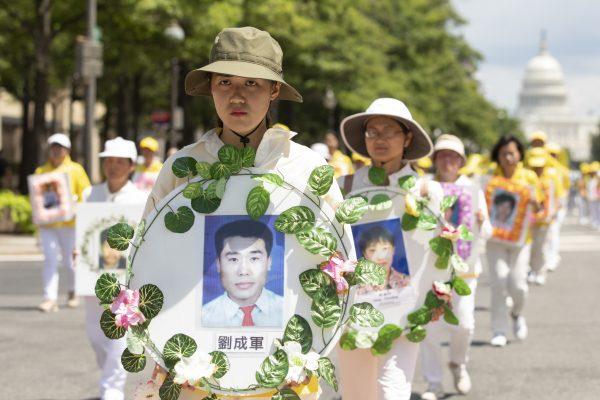
Wang Shaohua, a U.S.-based practitioner originally from mainland China, said that she wanted to be here for all those practitioners in China who don’t get a chance to raise their voices.
She said that any news received from the international community about efforts to end the persecution sends a wave of excitement to practitioners in the mainland.
“[They told me that] sometimes when they read our messages ... tears would stream down their faces,” she said.
Wang endured torture while detained at a labor camp in China in 2011. After she was released, she managed to flee to the United States in 2013.
She said that life inside the labor camp was “a life and death situation every day.”
The first thing that guards asked her every day was whether she would give up her faith. If she refused, the guards would deprive her of sleep.
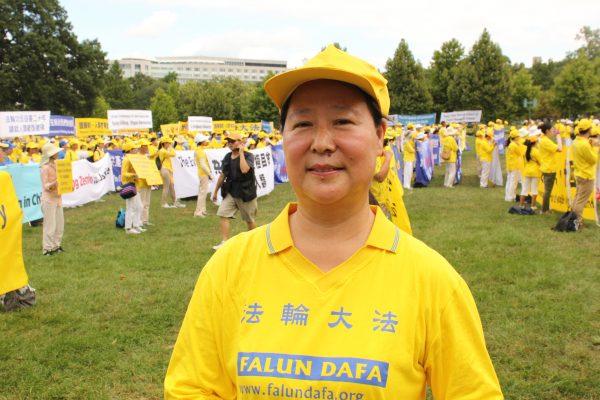
In retaliation for her “stubbornness,” the guards made her sit motionless on a low plastic stool from morning to night. She slept an average of two hours a day for seven months.
“Every second there felt like a year in the outside world,” Wang said. “They said they wanted to destroy us physically. That was exactly what happened.”
Guards also forbade Wang from using the restroom, causing her stomach to swell, and she would bleed when she urinated. Due to prolonged sitting on the stool, her hip bones became protruded and the skin on the hip turned black. The stool became a “blade grazing [her] skin,” she said.
Even standing up briefly during mealtime became a form of torture.
“It felt as if my body was falling into pieces,” Wang said.
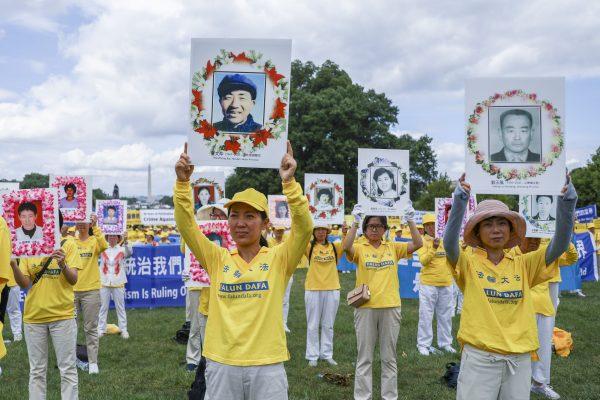
Wang was transferred to another labor camp in Inner Mongolia in 2012, where she went through even more brutal torture, including being shocked with two 900-volt batons and locked solitary confinement, and having her limbs tied to the four corners of a bed for prolonged periods of time.
Yet despite the harsh treatment, Wang and other detained practitioners continued to approach the guards with kindness. By the time she was released from the labor camp, they had managed to get over 160 guards and inmates to renounce their membership in the CCP and its affiliates.
Soon after her release from detention, Wang flew to the United States on a tourist visa in 2013. Since then, she has been going to tourist sites regularly to talk to Chinese visitors.
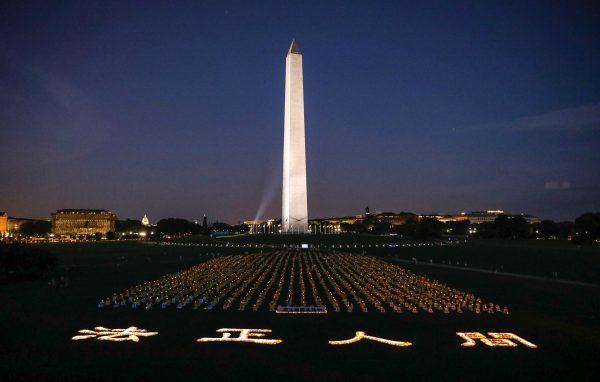
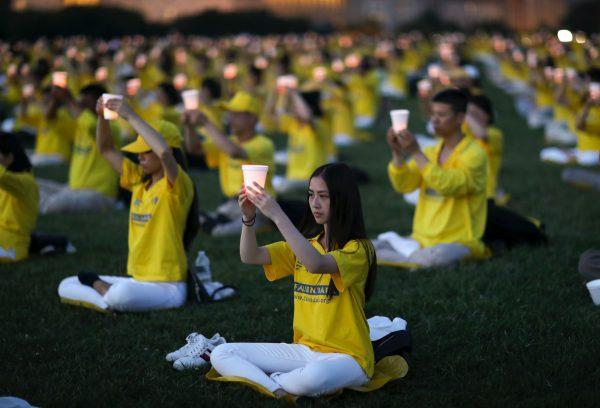
Many Chinese she spoke with had no idea about the ongoing persecution in their country, due to the regime’s tight censorship. They are often stunned and became speechless upon seeing her scars, she said.
Telling the truth to Chinese people is Wang’s way of cherishing freedom in America.
“It’s the continuance of a [new] life.”
